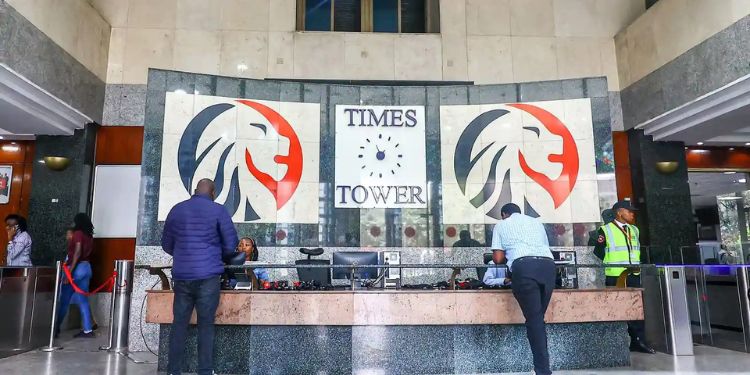The Kenya Revenue Authority (KRA) has unveiled the Electronic Rental Income Tax System (eRITS), a new platform designed to facilitate easier compliance with rental income tax obligations for landlords and property owners.
The system will enable taxpayers to file returns, pay Monthly Rental Income (MRI), and manage property details in a simple, efficient, and convenient manner.
Taxman has urged all individuals and companies earning rental income to log in to the platform and update or correct their property information to avoid penalties.
“Kenya Revenue Authority (KRA) wishes to notify the public that it has rolled out an Electronic Rental Income Tax System (eRITS), which will facilitate easier payment of Monthly Rental Income (MRI). The system enables management of properties, filing, and payment of rental taxes in a simple and convenient way,” read part of the statement.
eRITS is accessible through the KRA website at https://erits.kra.go.ke or via the eCitizen portal, which shall provide seamless integration with existing government digital services.
The authority stated that taxpayers experiencing difficulties with registration or filing can reach KRA through the contact centre, via WhatsApp on 0711 099 999, by email at [email protected], or by visiting the nearest KRA office.
“KRA is committed to continue supporting and facilitating all taxpayers to comply with the requirements of the existing Laws through simplified solutions,” read part of the statement.
Why Launch eRITS
The taxman stated that the Electronic Rental Income Tax System (eRITS), a new online platform, will help landlords and property owners to comply with tax requirements more easily.
The system, developed under the government’s Gava Connect framework, allows users to automatically calculate, file, and pay rental income tax.
The authority stated that the move will improve efficiency, increase revenue collection in the real estate sector, and make tax compliance more straightforward and predictable for property owners.
Also Read: Inside KRA’s New Digital Tax Proposals Targeting ChatGPT, Netflix and Other Tech Giants
KRA Services You Can Apply via the eRITS Platform
Taxpayers can access the following services through the eRITS platform:
- Rental Properties Registration
Register land and buildings from which you earn rental income. This includes any payments such as rent, lease fees, royalties, or premiums. - Rental Income Tax Returns
File your rental income tax returns and generate payment slips for both self-assessment and amended returns. - Rental Income Tax Payments
Make your rental income tax payments directly through your rental tax account on eRITS.
Also Read: KRA Issues Directive for 2025 Transit and Customs Vehicle License Renewals
How to Use the Rental Income Portal (eRITS)
- Create an Account
If you do not already have one, sign up on eRITS or through the eCitizen portal. - Register Your Properties
Add details of the rental properties you own or manage. - File Rental Income Returns
Declare your monthly rental income through the system. - Pay Rental Income Tax
Make payments conveniently through the integrated platform.
Follow our WhatsApp Channel and X Account for real-time news updates.











































































Subject: Urgent Concern on Equity and Effectiveness in Tax Base Expansion
Despite occasional system inefficiencies with itax, the core issue facing KRA is not technological—it is structural. The persistent challenge lies in the failure to meaningfully expand and enforce the tax base.
It remains deeply concerning that salaried employees—such as waiters earning KES 25,000 per month—are consistently taxed at source, while informal business owners with annual turnovers exceeding KES 1,000,000 remain outside the tax net. This disparity undermines the principle of equity in taxation.
What is even more troubling is that such individuals operate in full view of government systems, including county officers who interact with them daily. Yet, despite this visibility, they are neither profiled nor brought into compliance. This signals a breakdown not in data availability, but in strategic enforcement and policy will.
If KRA is to fulfill its mandate and build public trust, it must urgently address this blind spot. Expanding the tax base requires more than digital upgrades—it demands coordinated intelligence, grassroots engagement, and a fair, inclusive approach to enforcement. Perhaps kra should consider having a tax agent in every town a local person who lives within to collect data from business people on physically on a daily Basis. This person will know all the business owners in his area, he will know approximately how much sales they make and will enforce registration and compliance. A kiosk owner, mama kibanda makes more than 20,000/- sales per day and they don’t pay anything.
There is a huge informal sector business operators who are not including kra tax system, either by design or default.
Some have large business stocks and operations, making millions a month and pay no taxes.
Is it eneffiency or collusion in tax avoidance?